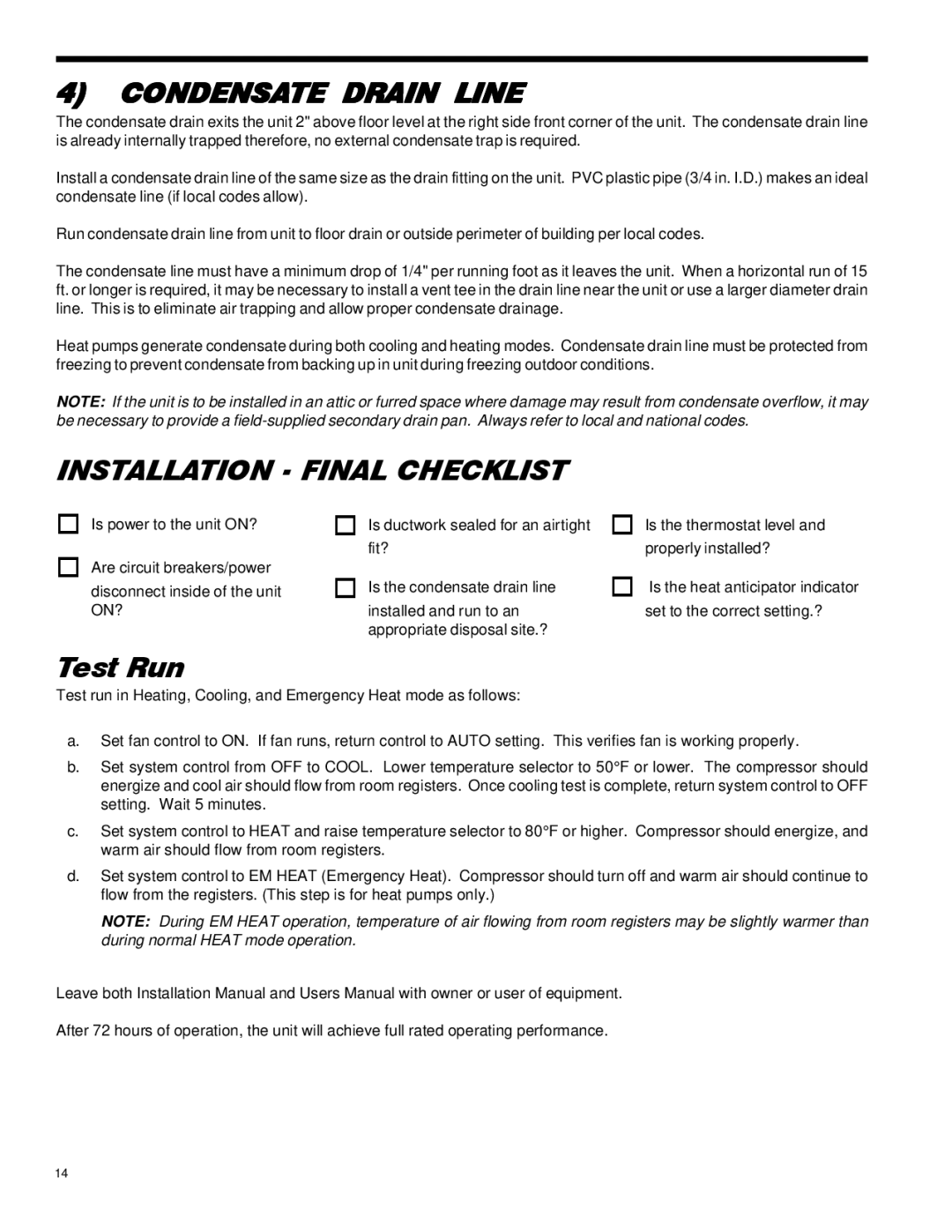4)CONDENSATE DRAIN LINE
The condensate drain exits the unit 2" above floor level at the right side front corner of the unit. The condensate drain line is already internally trapped therefore, no external condensate trap is required.
Install a condensate drain line of the same size as the drain fitting on the unit. PVC plastic pipe (3/4 in. I.D.) makes an ideal condensate line (if local codes allow).
Run condensate drain line from unit to floor drain or outside perimeter of building per local codes.
The condensate line must have a minimum drop of 1/4" per running foot as it leaves the unit. When a horizontal run of 15 ft. or longer is required, it may be necessary to install a vent tee in the drain line near the unit or use a larger diameter drain line. This is to eliminate air trapping and allow proper condensate drainage.
Heat pumps generate condensate during both cooling and heating modes. Condensate drain line must be protected from freezing to prevent condensate from backing up in unit during freezing outdoor conditions.
NOTE: If the unit is to be installed in an attic or furred space where damage may result from condensate overflow, it may be necessary to provide a
INSTALLATION - FINAL CHECKLIST
!
!
Is power to the unit ON?
Are circuit breakers/power
disconnect inside of the unit ON?
!
!
Is ductwork sealed for an airtight
fit?
Is the condensate drain line
installed and run to an appropriate disposal site.?
!
!
Is the thermostat level and
properly installed?
Is the heat anticipator indicator
set to the correct setting.?
Test Run
Test run in Heating, Cooling, and Emergency Heat mode as follows:
a.Set fan control to ON. If fan runs, return control to AUTO setting. This verifies fan is working properly.
b.Set system control from OFF to COOL. Lower temperature selector to 50°F or lower. The compressor should energize and cool air should flow from room registers. Once cooling test is complete, return system control to OFF setting. Wait 5 minutes.
c.Set system control to HEAT and raise temperature selector to 80°F or higher. Compressor should energize, and warm air should flow from room registers.
d.Set system control to EM HEAT (Emergency Heat). Compressor should turn off and warm air should continue to flow from the registers. (This step is for heat pumps only.)
NOTE: During EM HEAT operation, temperature of air flowing from room registers may be slightly warmer than during normal HEAT mode operation.
Leave both Installation Manual and Users Manual with owner or user of equipment.
After 72 hours of operation, the unit will achieve full rated operating performance.
14
